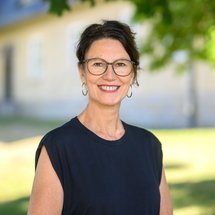German as a foreign language
German language skills required for the degree programme
If you would like to study at Ostfalia, as an international applicant you must provide proof of sufficient German language skills.
The following certificates are accepted:
- The German Language Diploma of the Standing Conference of the Ministers of Education and Cultural Affairs (Level II)
- The German Language Test for University Entrance (DSH)
- The paper-based or digital TestDaF with at least 16 points (level 4 four times each)
- The assessment test (after attending a preparatory college)
- The Goethe-Zertifikat C2
- The telc exam "Deutsch C1 Hochschule"
- A school-leaving certificate that is recognised in Germany as a university entrance qualification and proves appropriate German language skills
Participation in German courses for refugees
If you are a refugee and would like to improve your German language skills, you have the opportunity to take part in German courses at Ostfalia. In consultation with the respective teachers, you can join the DaF pre-courses in the winter semester. These courses start around two weeks before the start of the semester and usually take place in the mornings - usually five hours a day. You will be enrolled as a guest student.
You can also take part in the regular German courses during the semester by arrangement, together with international students who would also like to improve their German. These courses run throughout the semester and offer a good opportunity to improve your language skills in everyday life and during your studies.
It is also possible to attend individual lectures as a guest student. These lectures are primarily aimed at so-called incomers - international students who are studying at Ostfalia for one or two semesters. As these courses usually only comprise four hours per week, it is unfortunately not possible to apply for a visa to attend these courses.
The levels offered (from A1 to C1) depend on the language skills of the participating students. It is therefore possible that courses at all language levels are not available every semester.
If you would like to study at Ostfalia, you also have the opportunity to take part in a DSH preparation course. If you successfully complete the DSH exam (at least level DSH-2), you will fulfil the language requirements for a degree course. All information about the DSH courses and exams can be found under DSH exam and preparation course (external link, opens in a new window).
If you receive benefits in accordance with § 9 Para. 1 SGB XII or SGB II, you can be exempted from the guest auditor fee. You can find more information on this on the website of the Enrolment Office.
Did you know that over 120 million people worldwide speak German? German is an everyday language not only in Germany, but also in Austria, Switzerland, Liechtenstein, Luxembourg, parts of Belgium, northern Italy and eastern France (Alsace and Lorraine). It is even the most widely spoken language in the EU. Around 80 million people are learning German as a foreign or second language - perhaps you will soon be one of them?
German belongs to the West Germanic languages and has some exciting special features: three grammatical genders (masculine, feminine, neuter), four cases (nominative, genitive, dative, accusative) and a clear distinction between strong and weak adjective declension. Sounds complicated? Don't worry - with a little practice, you'll soon find your way around!
M. A. Angela Dorothee Goldkamp
Koordination der Sprache Deutsch (als Fremdsprache), Language Centre
Building Am Exer 3, Room 19, Wolfenbüttel

-
Veronika Rischer-Kallina
-
Peter K. G. Welge
If you have any questions, please contact the Language Centre team.
